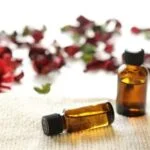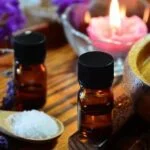
Aromatherapy has been used for centuries as a way to enhance mood and promote overall well-being. This introduction section will provide an overview of what aromatherapy is and how it can be used to improve and uplift our emotional state. We will explore the history of aromatherapy, its benefits, and how essential oils play a crucial role in enhancing mood.
Aromatherapy is the practice of using natural plant extracts, known as essential oils, to improve physical, mental, and emotional health. Throughout history, various cultures have recognized the power of scents and their ability to influence our emotions. The healing properties of essential oils have been utilized in ancient Egyptian rituals, Chinese medicine, and Ayurvedic practices.
The use of essential oils in aromatherapy can positively affect our mood due to their chemical composition. These aromatic compounds interact with receptors in our nose that send signals to our brain’s limbic system – the area responsible for emotions, memory, and behavior. When we inhale certain essential oils, they can have a calming effect on our nervous system or stimulate the production of neurotransmitters associated with happiness and relaxation.
In this article, we will delve into the science behind how aromatherapy affects mood and explore different essential oils that are known for their mood-enhancing properties. By understanding these mechanisms and exploring various techniques for incorporating aromatherapy into daily life, you can harness its potential benefits for your own emotional well-being.
Whether you’re seeking stress relief or looking for an energy boost, aromatherapy offers a natural and holistic approach to uplifting your spirits and enhancing your overall mood.
Understanding the Science Behind Aromatherapy and Mood
Aromatherapy has long been recognized for its ability to enhance mood and promote a sense of well-being. In this section, we will delve into the science behind how aromatherapy affects mood and why it is such an effective tool for emotional enhancement.
When we inhale essential oils, the molecules are carried through our nasal passages and reach the olfactory system in our brain. The olfactory system is closely connected to the limbic system, which plays a key role in regulating emotions and memory retrieval. This connection allows the aromatic compounds in essential oils to have a direct impact on our emotional state.
Studies have shown that specific molecules found in essential oils can influence neurotransmitters like serotonin, dopamine, and norepinephrine, which are responsible for regulating mood. For example, certain compounds found in lavender oil have been shown to increase serotonin levels, leading to feelings of relaxation and calmness. Similarly, citrus oils like bergamot and lemon contain uplifting molecules that can stimulate the release of dopamine and norepinephrine, promoting a positive mood and energy.
Not only do essential oils have psychological effects on mood, but they also have physiological effects on the body. Studies have demonstrated that inhaling certain essential oils can lower heart rate and blood pressure, reduce stress hormones like cortisol, and even modulate immune function. These physiological changes contribute to the overall sense of well-being that aromatherapy can provide.
To better understand how aromatherapy affects mood at a deeper level, researchers are continuing to explore the neurochemical pathways involved in these processes. They are investigating how different aroma combinations affect brain activity using techniques such as functional magnetic resonance imaging (fMRI) and electroencephalography (EEG). This ongoing research holds promise for further advancements in using aromatherapy for mood enhancement.
| Compound | Mood Effect |
|---|---|
| Linalool (found in lavender) | Relaxation, calmness |
| Limonene (found in citrus oils) | Elevated mood, energy |
| Beta-caryophyllene (found in black pepper, clove) | Reduced anxiety, stress relief |
Understanding the science behind aromatherapy’s effects on mood not only helps us appreciate its benefits but also allows us to make informed choices when selecting essential oils for specific emotional needs. By considering the specific molecules and their effects on the brain and body, individuals can customize their aromatherapy practice to suit their unique preferences and desired mood enhancements.
Different Essential Oils for Different Moods
When it comes to using aromatherapy for mood enhancement, different essential oils can have varying effects on our emotions. In this section, we will explore a variety of essential oils that are known for their mood-enhancing properties and provide insights into how each oil can positively influence a person’s emotional state.
One popular essential oil for enhancing mood is lavender. Lavender has long been associated with relaxation and stress relief. Its calming scent can help to promote feelings of peace and tranquility, making it an excellent choice for those experiencing anxiety or difficulty sleeping. Many studies have shown that inhaling lavender oil can significantly reduce feelings of stress and improve overall well-being.
Another essential oil known for its uplifting properties is bergamot. Bergamot has a citrusy aroma that is both refreshing and energizing. This oil can help to boost mood, alleviate feelings of sadness or depression, and promote a sense of joy. Bergamot has also been found to have anxiety-reducing effects, making it a versatile choice for those looking to enhance their emotional well-being.
Ylang-ylang is another essential oil that is commonly used for mood enhancement. It has a sweet, floral scent that can evoke feelings of happiness and pleasure. Ylang-ylang is believed to have strong antidepressant properties and may help to alleviate symptoms of anxiety and tension. This oil is often used in aromatherapy blends designed to uplift the spirits and create a positive atmosphere.
Lastly, rose essential oil is highly regarded for its ability to improve mood and reduce feelings of stress or anxiety. Rose has a beautiful floral scent that is often associated with love and romance. The aroma of rose oil can help to soothe the emotions, enhance self-esteem, and promote relaxation. It is frequently used in aromatherapy practices aimed at fostering emotional healing and balance.
Incorporating different essential oils into your daily routine can be an effective way to enhance your mood and well-being. Whether it’s using lavender for relaxation, bergamot for a mood boost, ylang-ylang for happiness, or rose for emotional healing, there is an essential oil suited for every mood and situation. Experimenting with different oils and finding what works best for you can help to create a personalized aromatherapy practice that brings joy and balance to your life.
The Role of Aromatherapy in Managing Stress and Anxiety
Aromatherapy for Stress Reduction
One of the most well-known and widely studied benefits of aromatherapy is its ability to reduce stress. Aromatherapy has been shown to have a calming effect on the mind and body, promoting relaxation and reducing feelings of anxiety. This can be especially helpful for individuals who experience chronic stress or have difficulty managing their stress levels.
Research has indicated that certain essential oils have stress-reducing properties. Lavender oil, for example, has been found to decrease cortisol levels – the hormone associated with stress – and improve feelings of relaxation. Another powerful oil for stress reduction is bergamot, which has been shown to stimulate the release of serotonin and dopamine, neurotransmitters that promote a sense of calmness and well-being.
Aromatherapy as an Anxiety Reliever
In addition to its stress-reducing effects, aromatherapy can also effectively alleviate symptoms of anxiety. Various essential oils possess anxiolytic properties that help soothe anxious thoughts and promote a greater sense of tranquility. Ylang-ylang oil, for instance, has been found to significantly reduce symptoms of anxiety and improve mood.
Moreover, rose oil is renowned for its ability to calm the mind and alleviate nervousness. It contains compounds that regulate the secretion of cortisol, thereby diminishing anxiety levels. By incorporating these essential oils into one’s daily routine – either through inhaling their aroma or applying them topically – individuals may experience a significant reduction in anxiety symptoms.
Research Studies on Aromatherapy in Stress Management
The effectiveness of aromatherapy in managing stress and anxiety has been supported by various scientific studies. One study published in the Journal of Alternative and Complementary Medicine explored the effects of aromatherapy on participants undergoing coronary angiography procedures – a potentially stressful medical intervention. The results indicated that aromatherapy significantly reduced anxiety levels compared to a control group, suggesting that it can be an effective adjunctive therapy for individuals experiencing acute stress.
Another study published in the Journal of Evidence-Based Complementary and Alternative Medicine examined the effects of aromatherapy massage on stress, anxiety, and immune function in cancer patients. The findings revealed that participants who received the aromatherapy massage experienced a greater reduction in stress and anxiety levels compared to those who received regular massage alone. Additionally, their immune function was enhanced, indicating that aromatherapy can have a positive impact on both psychological and physiological aspects of stress management.
Overall, these studies provide evidence of the beneficial effects of aromatherapy in reducing stress and anxiety. By incorporating specific essential oils into one’s self-care routine, individuals may find relief from these common mental health concerns and improve their overall well-being.
Using Aromatherapy to Boost Energy and Lift Spirits
Aromatherapy is not only effective in improving mood but can also be used as a natural energy booster and mood lifter. Certain essential oils have invigorating properties that can help to uplift spirits and increase energy levels. Incorporating these oils into daily routines can provide a much-needed pick-me-up and enhance overall well-being.
Invigorating Essential Oils
There are several essential oils known for their energizing properties. Peppermint oil is one such oil that has a refreshing scent and stimulates the mind, making it an excellent choice for boosting energy. Lemon oil is another invigorating scent that helps to improve focus and concentration while providing a natural lift to the spirits. Sweet orange oil is also known for its mood-enhancing properties and can promote feelings of happiness, positivity, and vitality.
Incorporating Energizing Oils into Daily Routine
There are various ways to incorporate these energizing oils into daily routines for maximum effect. One popular method is to use a diffuser, which releases the aroma of the essential oils into the air. Adding a few drops of peppermint, lemon, or sweet orange oil to a diffuser can create an uplifting atmosphere throughout the day.
Another way to benefit from the invigorating properties of these oils is through inhalation. Adding a drop or two onto a handkerchief or tissue allows you to breathe in their scent whenever needed. You can also apply diluted drops of these oils directly onto your skin for an instant boost.
Additionally, incorporating energizing essential oils into massage or bath rituals can provide a rejuvenating experience. Adding drops of peppermint, lemon, or sweet orange oil to carrier oils or bathwater can revitalize both the body and mind.
Tips for Maximum Benefits
To maximize the benefits of using essential oils for energy and mood enhancement, it is important to consider a few tips. First, choose high-quality oils from reputable sources to ensure purity and effectiveness. Dilute the essential oils properly before applying them to the skin to avoid any potential adverse reactions. Additionally, it is always recommended to do a patch test before using any new oil topically.
It’s worth noting that aromatherapy can be highly personalized, and what works for one person may not work for another. Experimenting with different essential oils and finding the scents that resonate with you is key to incorporating aromatherapy into your daily routine effectively.
Incorporating invigorating essential oils into your daily life can provide a natural energy boost and uplift your spirits. Whether through diffusion, inhalation, massage, or bath rituals, using these oils mindfully can help you feel revitalized and ready to tackle the day ahead.
The next section will delve into different methods and techniques of using aromatherapy for mood enhancement, providing information on diffusers, inhalation, massage, and bath rituals.
Aromatherapy Techniques for Mood Enhancement
In this section, we will delve into different methods and techniques of using aromatherapy for mood enhancement. Aromatherapy offers various ways to experience the benefits of essential oils, from diffusers to inhalation, massage, and bath rituals. Each technique has its own advantages and limitations that can help individuals maximize the benefits of aromatherapy.
One popular method of enjoying aromatherapy is through the use of diffusers. Diffusers disperse essential oils into the air, allowing them to be inhaled and absorbed by the body. There are several types of diffusers available, including ultrasonic diffusers, nebulizing diffusers, and heat-based diffusers.
Ultrasonic diffusers are particularly popular as they use water and ultrasonic vibrations to create a fine mist that carries the aroma throughout a room. This method not only enhances mood but also provides a refreshing and calming atmosphere.
Inhalation is another effective technique for experiencing the mood-enhancing properties of essential oils. This can be done simply by adding a few drops of essential oil onto a tissue or handkerchief and inhaling deeply.
Alternatively, individuals can add essential oils to hot water or a bowl of steaming water and cover their head with a towel to create a steam tent for inhalation. Inhalation allows the molecules in essential oils to reach the olfactory system directly, stimulating the limbic system responsible for mood regulation.
Massage is another popular way to incorporate aromatherapy into your daily routine for mood enhancement. Essential oils can be blended with carrier oils such as coconut oil or jojoba oil and applied topically during a massage session. The combination of touch therapy and aromatic compounds creates a powerful sensory experience that promotes relaxation, reduces stress, and uplifts mood. Different techniques such as Swedish massage or acupressure can be utilized along with specific essential oil blends tailored to individual needs.
Lastly, using essential oils in bath rituals can provide a luxurious and therapeutic experience. Adding a few drops of essential oil to warm bath water allows the aroma to disperse in steam, creating a relaxing and soothing atmosphere. The heat from the water also helps the essential oils absorb into the skin, providing additional benefits for mood enhancement. Aromatherapy baths are especially beneficial for those looking to unwind and promote a sense of well-being after a long day.
Each aromatherapy technique offers its own unique advantages, so it’s important to experiment with different methods to find what works best for you. Some individuals may prefer diffusers for their convenience and continuous diffusion of aroma, while others may find massage or inhalation more effective in targeting specific emotional states. Regardless of the chosen technique, incorporating aromatherapy into daily life can greatly enhance mood and well-being.
| Aromatherapy Technique | Advantages |
|---|---|
| Diffusers | Convenient and continuous diffusion of aroma throughout a room |
| Inhalation | Directly stimulates limbic system through olfactory system for mood regulation |
| Massage | Combines touch therapy with aromatic compounds for relaxation and stress reduction |
| Bath Rituals | Soothing and luxurious experience, allowing absorption through both inhalation and skin |
Safety Precautions and Considerations in Aromatherapy
Aromatherapy is a safe and effective practice when used properly. However, it is important to take precautions to ensure that essential oils are used safely and responsibly. In this section, we will provide guidelines for selecting high-quality oils, dilution ratios, and potential contraindications. We will also address concerns regarding allergies, sensitivities, and interactions with medications.
When using aromatherapy for mood enhancement, it is crucial to choose high-quality essential oils. Look for oils that are pure and natural, without any additives or synthetic fragrances. One way to ensure the quality of an oil is to look for third-party testing and certification from reputable organizations such as the International Organization for Standardization (ISO) or the National Association for Holistic Aromatherapy (NAHA).
Dilution ratios are important in aromatherapy to prevent skin irritations or reactions. Essential oils should never be applied directly onto the skin without diluting them with a carrier oil, such as coconut oil or sweet almond oil. The recommended dilution ratio for adults is typically 2-3 drops of essential oil per teaspoon of carrier oil.
It is also essential to consider potential contraindications before using certain essential oils. Some oils may not be suitable for individuals with certain medical conditions or those who are pregnant or breastfeeding. For example, pregnant women should avoid using clary sage or rosemary oil.
Allergies and sensitivities are another consideration when using aromatherapy. It is recommended to perform a patch test before applying an essential oil topically. Apply a small amount of diluted oil on the inner arm and wait 24 hours to check for any adverse reactions.
Furthermore, it is important to be aware of possible interactions between essential oils and medications. Certain oils can interact with medications causing adverse effects or reducing their effectiveness. It is advised to consult with a healthcare professional or qualified aromatherapist if you are currently taking medications or have underlying health conditions.
Overall, by following these safety precautions and considering individual factors, aromatherapy can be enjoyed as a safe and beneficial practice for mood enhancement. It is always important to listen to your body and discontinue use if any adverse reactions occur.
Personal Testimonials and Success Stories
Aromatherapy has gained popularity among individuals seeking natural solutions for enhancing mood and well-being. In this section, we will share personal testimonials and success stories from individuals who have experienced the positive impact of aromatherapy on their mood.
- Jane’s Story: Overcoming Anxiety with Lavender Oil Jane suffered from chronic anxiety for years, struggling to find an effective solution. After exploring different options, she decided to try aromatherapy with lavender oil. She found that inhaling the soothing scent of lavender helped her relax and calm her anxious thoughts. Jane now uses lavender oil in a diffuser daily and credits it with drastically reducing her anxiety levels.
- Mark’s Testimonial: Boosting Energy with Citrus Oils Mark often felt drained of energy throughout the day and relied on caffeine to stay alert. However, he wanted a more natural way to boost his energy levels. After discovering the invigorating properties of citrus oils like lemon and sweet orange, Mark started diffusing these oils in his workspace. He noticed a significant improvement in his energy and focus without the jitters associated with caffeine consumption.
- Sarah’s Success: Finding Relief from Stress with Bergamot Oil Sarah had been overwhelmed by stress due to her demanding job and personal responsibilities. Seeking relief, she turned to aromatherapy and discovered bergamot oil’s unique ability to promote relaxation and mood balance. Sarah used bergamot oil during her evening bath rituals, allowing the captivating scent to envelop her senses. As a result, she experienced a sense of calmness that carried into her everyday life.
These personal testimonials demonstrate how individuals have incorporated aromatherapy into their lives to improve their overall mood and well-being. The experiences shared highlight the versatility of essential oils in addressing various emotional states such as anxiety, low energy levels, and stress.
Through these success stories, readers can gain inspiration and motivation to explore the potential benefits of aromatherapy for their own mood enhancement. It is important to note that individual experiences may vary, and it is recommended to consult with a healthcare professional before starting any new wellness practices.
As we conclude this section, we encourage readers to consider the power of aromatherapy in enhancing mood and positively impacting their daily lives. By leveraging the science-backed benefits of essential oils, individuals can find natural and accessible solutions to support their emotional well-being.
Conclusion
In conclusion, aromatherapy offers a natural and effective way to enhance mood and improve overall well-being. Throughout this article, we have explored the concept of aromatherapy, its scientific mechanisms, different essential oils for various moods, and its role in managing stress and anxiety. We have also discussed how aromatherapy can be used to boost energy and lift spirits and explored various techniques for incorporating aromatherapy into daily life.
By embracing aromatherapy, individuals have the opportunity to experience the profound benefits it can offer. The use of essential oils has been shown to positively impact emotion, promoting relaxation, calmness, and a sense of well-being. Whether it is through diffusers, inhalation, massage, or bath rituals, there are many ways to incorporate aromatherapy into one’s routine.
It is important to approach aromatherapy with caution and adhere to safety precautions. Selecting high-quality oils, diluting them properly, and being aware of potential allergies or contraindications is crucial. However, when used responsibly, aromatherapy has the potential to greatly enhance mood.
As we conclude this article on embracing aromatherapy for mood enhancement, we invite readers to explore this ancient practice for themselves. By experimenting with different essential oils and incorporating them into their routines, individuals can discover the unique benefits that work best for them. The field of aromatherapy continues to evolve with ongoing research and potential future developments. It is an exciting journey towards improved mood and overall well-being through the power of scent.
Frequently Asked Questions
What essential oils help improve mood?
Several essential oils have been known to help improve mood. One popular oil is lavender, which is often used for its calming and relaxing properties. It can help reduce stress and promote a sense of tranquility, making it a great choice for improving mood.
Another oil that can uplift the spirits is bergamot, known for its citrusy scent. Bergamot has been found to have mood-boosting effects, helping to create a more positive and joyful atmosphere. Additionally, ylang-ylang oil has been shown to alleviate feelings of anxiety and depression, making it another oil that can be beneficial for improving mood.
How does aromatherapy improve mood?
Aromatherapy works to improve mood through various mechanisms. Firstly, inhaling certain essential oils stimulates the olfactory system and triggers emotional responses in the brain. These scents can activate the limbic system, which is responsible for regulating emotions and memories.
By stimulating this part of the brain, aromatherapy can evoke positive emotions and alleviate negative ones. Additionally, some essential oils contain compounds that have direct effects on neurotransmitters in the brain, such as serotonin or dopamine, which are closely linked to mood regulation. As a result, when these oils are used in aromatherapy, they can promote relaxation, reduce anxiety or stress levels, and ultimately enhance overall mood.
What is the best aroma for mental health?
There are several aromas that have been shown to be beneficial for mental health; however, determining the “best” aroma for mental health may vary depending on individual preferences and needs. One commonly recommended aroma for mental health is chamomile. It has a soothing scent that can help calm an overactive mind and promote better sleep quality – both crucial aspects of maintaining good mental well-being.
Another aroma often associated with mental health benefits is frankincense due to its grounding effect on emotions and ability to enhance focus and clarity of thoughts. Rosemary is also frequently recommended as it has stimulating properties that may invigorate the mind, improve memory retention, and boost mental alertness. Ultimately, finding the best aroma for mental health may require some personal experimentation to see which scent brings about the most positive effects.





